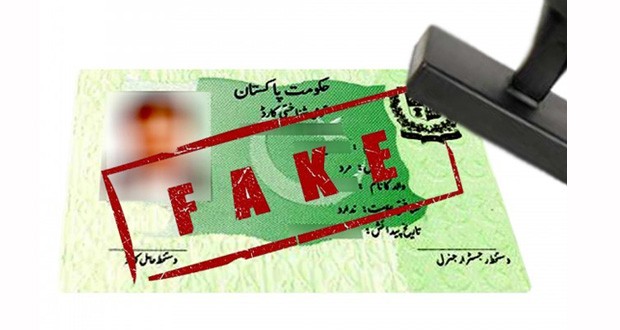Adnan Aamir
Balochistan is facing a variety of problems, one of which is the influx of Afghan immigrants. One of the most serious problems in this regard is the issue of hundreds of thousands of Computerised National Identity Cards (CNICs) to immigrants in Balochistan. This is a very serious problem because it will result in a change in demographics and convert the Baloch majority of Balochistan into a minority.
Baloch nationalist parties such as Balochistan National Party (BNP) have repeatedly claimed for the last few years that hundreds of thousands of CNICs have been issued to Afghan immigrants. BNP activists have held several protests outside the offices of the National Database and Registration Authority (NADRA). The claims of the BNP were normally rejected as unfounded paranoia of a nationalist party.
In September last year, the National Accountability Bureau arrested three officers of NADRA Balochistan. During investigations, the NADRA officials confessed to have issued thousands of CNICs to Afghan immigrants in exchange for hefty bribes. In January this year, an accountability court in Quetta handed down seven-year imprisonment sentences to two NADRA officials found guilty of issuing CNICs to Afghan immigrants. These developments proved the concerns of Baloch nationalists to be true and the issue of citizenship documents to Afghan nationals is an established fact now.
Protests of Baloch nationalists and the conviction of two of its officers forced NADRA to take stringent measures in case of Afghan immigrants. NADRA blocked over 88,000 CNICs in Balochistan after their holders failed to prove their Pakistani identity in any way. This was a great step taken by the authority to bring an end to the practice of issuing CNICs to Afghan nationals.
NADRA soon started to face strong opposition from some political parties that allegedly have a soft corner for Afghan immigrants. Different political parties issue statements against NADRA on a daily basis and particularly criticise the step to block 88,000 CNICs. A few days back, hundreds of people held a sit-in outside NADRA’s offices in Quetta to pressurise it into unblocking all those CNICs. All these pressure tactics have put NADRA on the backfoot and the process to vigilantly block illegal CNICs of Afghan nationals has slowed down.
The political and social organisations that are protesting the blocking of CNICs maintain that the holders of these CNICs are Pakistani nationals not Afghan nationals. This is a flimsy excuse. The DG of NADRA Balochistan also rejected the allegation that the CNIC of any Pakistani national has been blocked. NADRA’s provincial chief clarified that the authority does not block CNICs without a valid reason.
Nadra is one of the most organised institutions of the country. In Balochistan its performance has been below par in recent years. There are complaints from citizens that NADRA officials have made the process of issuance of CNICs extremely difficult. As a result the people of Balochistan in both the Baloch and Pashtun belts have genuine grievances against NADRA. However, NADRA’s incompetence in serving the people should not be used as a pretext to pressurise the organisation in clearing the blocked CNICs of Afghan immigrants.
The commendable steps taken by NADRA in the form of blocking CNICs of Afghan nationals only solve a fraction of the problem. This might deter NADRA officers from issuing CNICs to Afghan nationals in the future but what about the hundreds of thousands of CNICs already issued to them? As per newspaper reports, half a million identity cards have been issued to Afghan nationals illegally. NADRA has not taken any action against those CNIC holders. Given the blackmailing in the form of protests, it’s less likely that NADRA can ever identify and block all the CNICs issued to Afghans in the past.
Balochistan has been facing an ongoing insurgency for the last nine years. One of the factors that fuelled this insurgency was the concern that through the Gwadar project the Baloch would be converted into minority. The Gwadar project never became functional so that concern proved to be wrong. However, the discovery that half a million CNICs have been issued to Afghan nationals will reignite those fears. With a nationalist government in power in Balochistan, there are some expectations that there can be a political solution to Balochistan’s problems. But demographics engineering, in the form of naturalising Afghan citizens in Balochistan, will further exacerbate the problem and any chances of a political settlement will disappear.
It is an indisputable fact that Afghan immigrants have suffered a great deal of misery for the last three decades. They were forced to leave their homes and live in abject poverty in Balochistan. Having said that, their plight doesn’t justify issuing CNICs to them and creating problems for the people of Balochistan. Afghan immigrants in Balochistan are economic immigrants; they are still here due to economic reasons – not for security reasons. No one wants a forced exodus of Afghan nationals, but there needs to be zero tolerance on the issue of grant of citizenship documents to them.
In the aftermath of the Peshawar attack, Pakistan is in a spirit of resolute action. Over 120 million cellular SIMs are being verified through biometric means, funding to religious seminaries is being checked and so on. Taking advantage of the momentum, the government of Pakistan should address the issuance of CNICs to Afghan immigrants, not only in Balochistan but in the entire country. This is the most opportune time to take concrete action against fake CNICs. If this opportunity is missed and this issue, particularly in Balochistan, is not resolved then it will serve as a recipe for disaster.
Courtesy: The News
Author is a Freelance Columnist and Editor of The Balochistan Point.
Republished in The Balochistan Point on February 15, 2015
 Balochistan Point Voice of Nation
Balochistan Point Voice of Nation




